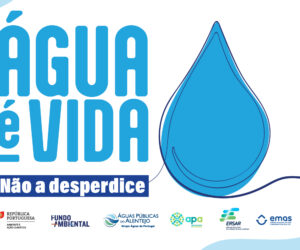“Crime Reduction Teams” are specialized non-uniformed police units with the mission of carrying out arrests in the act of committing crimes., whose main objective is to reduce crime, these teams being distinct from criminal investigation teams, which, under the supervision of the Public Prosecutor's Office, have as their main mission the preparation of investigation processes.
Colonel of the GNR
Master in Law and Security and Homeland Security Auditor
The “Crime Reduction Teams” have as their main mission the rapid response to complaints related to the commission of crimes, almost always acting on the street, namely in the places and times where most crime occurs.
Criminal investigation teams, perform much of their work in offices, where they comply with most procedural steps, such as cross-examination of defendants, offended and witnesses.
“Crime Reduction Teams” play an important role in crime prevention and reducing the perception of insecurity, by citizens, namely where most crimes occur.
Criminal investigation teams play a fundamental role in law enforcement and solving crimes, whose main responsibility is to investigate crimes, gather evidence, identify suspects and gather information to help solve cases, in compliance with the rules of the Criminal Procedure Code.
The “Crime Reduction Teams” are specialists in combating crime, its role being fundamental to public safety and contributing to the maintenance of order and a feeling of security.
Criminal investigation teams, typically specialize in specific areas, such as financial crime, helping to ensure that those responsible for crimes are held accountable before the law.
The “Crime Reduction Teams” combat crime that causes insecurity in populations, discreetly and effectively, being made up of trained police elements, to carry out patrols in areas where a uniformed police presence may be less effective or cause an adverse community reaction.
The main objective of the “Crime Reduction Teams” is to proactively prevent and combat crime, identifying criminal activities, gathering information and clues, and detaining suspects in flagrante delicto, in places with higher crime rates.
“Crime Reduction Teams” have several advantages, including the ability to mix with local people, carry out discreet surveillance, and arrest criminals in the act, being able to establish a relationship of trust with local residents, making it easier to obtain valuable information about ongoing criminal activities.
“Crime Reduction Teams” operate in places where criminal activity is most prevalent, gathering information about suspected individuals or groups of individuals, whose analysis helps predict and prevent criminal activities, carrying out civil operations, with the aim of detaining criminals in the act of committing crimes.
The “Crime Reduction Teams” based on the analysis of the information collected, direct their activity to specific areas that present a high risk of crime, whose arrests carried out, have the advantage of deterring potential criminals, increasing the perception of safety in the population.
“Crime Reduction Teams” work closely with the local community, establishing partnerships, particularly with traders, with the aim of identifying security problems and developing crime prevention strategies.
“Crime Reduction Teams” can also be involved in educational and public awareness programs, contributing to your protection against crimes, played a multifaceted role in crime prevention, whose civilian patrol, represents its greatest advantage in crime prevention.
Through civilian patrolling, criminals cannot identify “Crime Reduction Teams”, which can increase the effectiveness of police operations, allowing suspicious behavior to be observed without drawing attention to its presence, increasing the chances of arrests being made in flagrante delicto.
Civilian patrols allow “Crime Reduction Teams” to gather valuable information about ongoing criminal activities, whose information collected can be used to develop more effective crime prevention strategies.
When on civilian patrol, “Crime Reduction Teams” have more freedom of movement and can easily mix with the population, allowing them to access areas and interact with people, much easier than uniformed patrolling, especially in places of greater criminal activity.
Civilian patrolling contributes to increasing the population’s trust in the Security Forces, because “Crime Reduction Teams” respond directly to local concerns and needs.
Summarizing the presence of “Crime Reduction Teams”, deters criminals from committing crimes, due to the fact that they do not know if they are being observed, reducing the incidence of crime and increasing the feeling of safety in the community, They also offer a flexible and effective approach to crime prevention, enjoying the surprise, the collection of information, operational flexibility, improving relations with the community and detaining criminal suspects in flagrante delicto, thus increasing public safety and reducing crime.

























